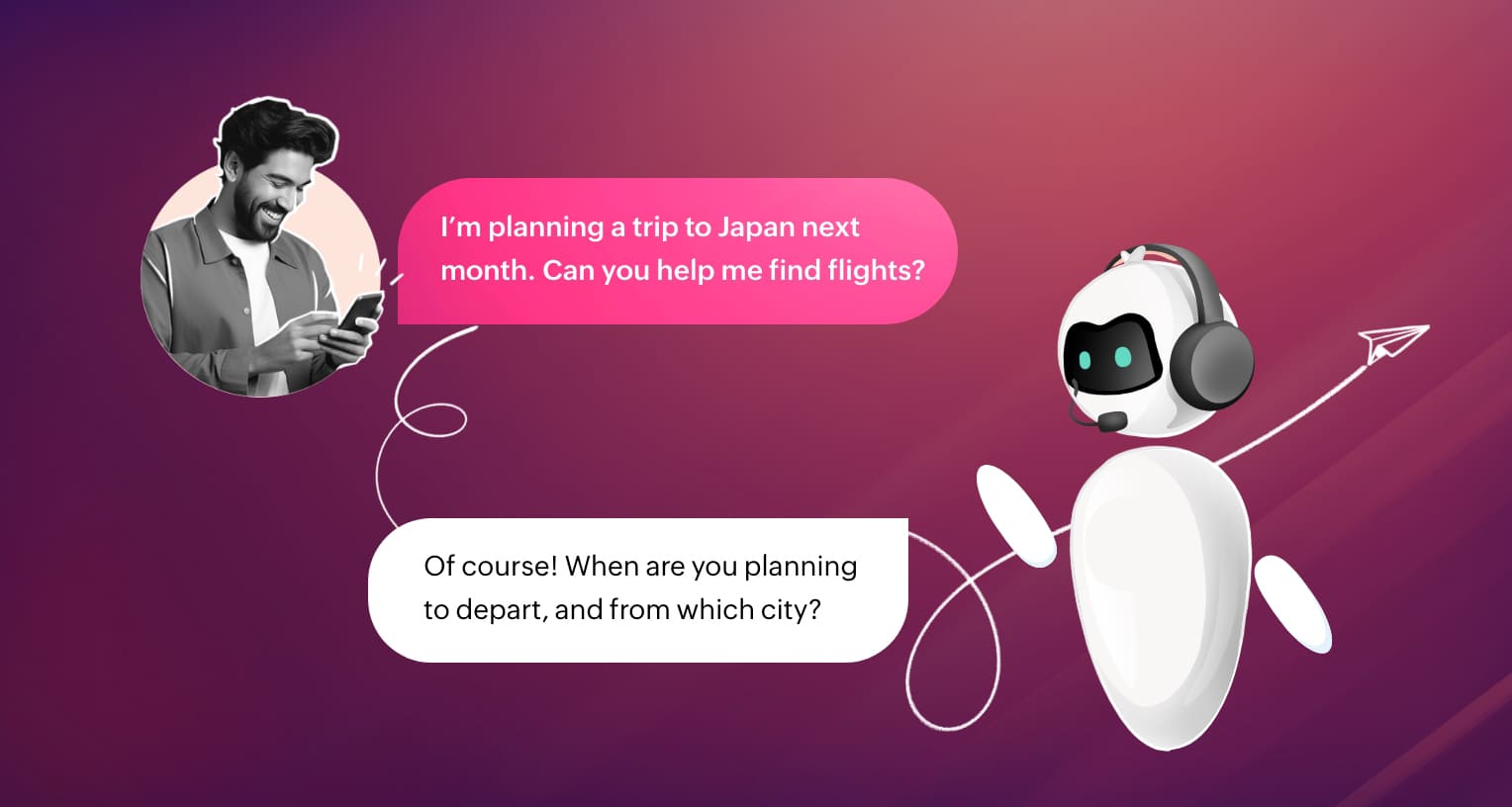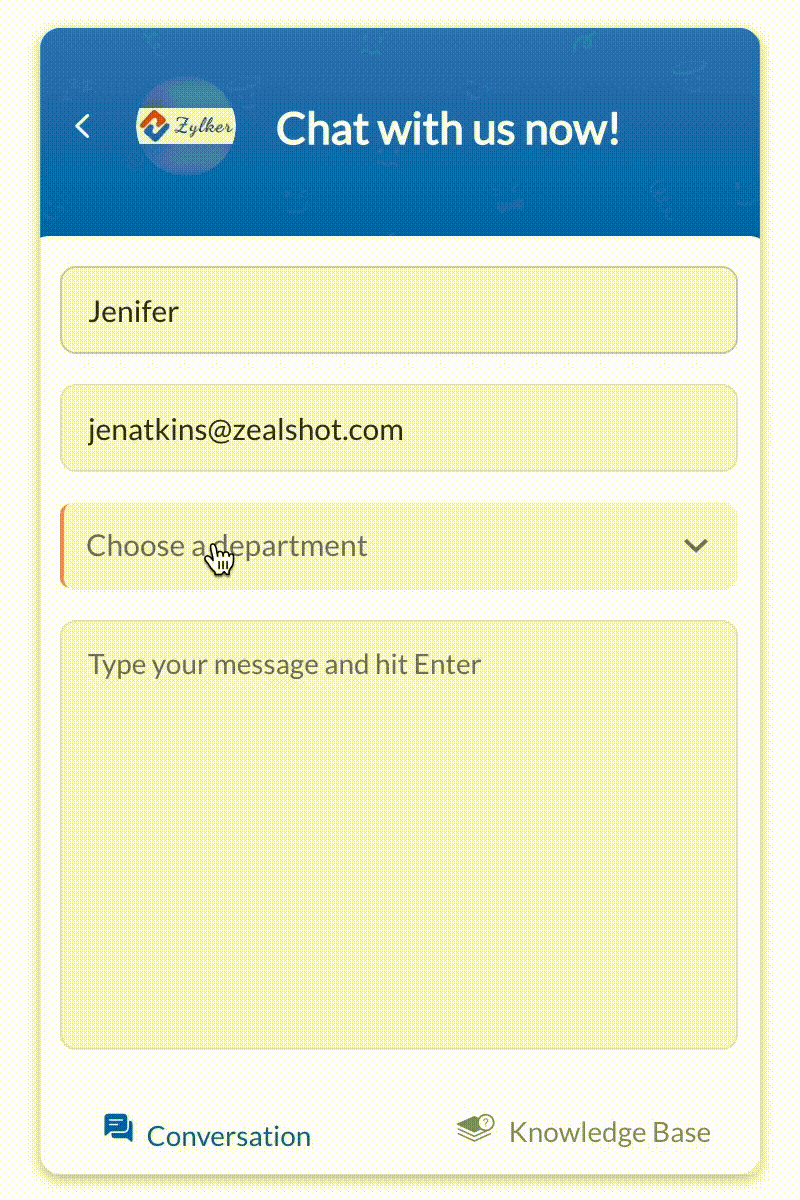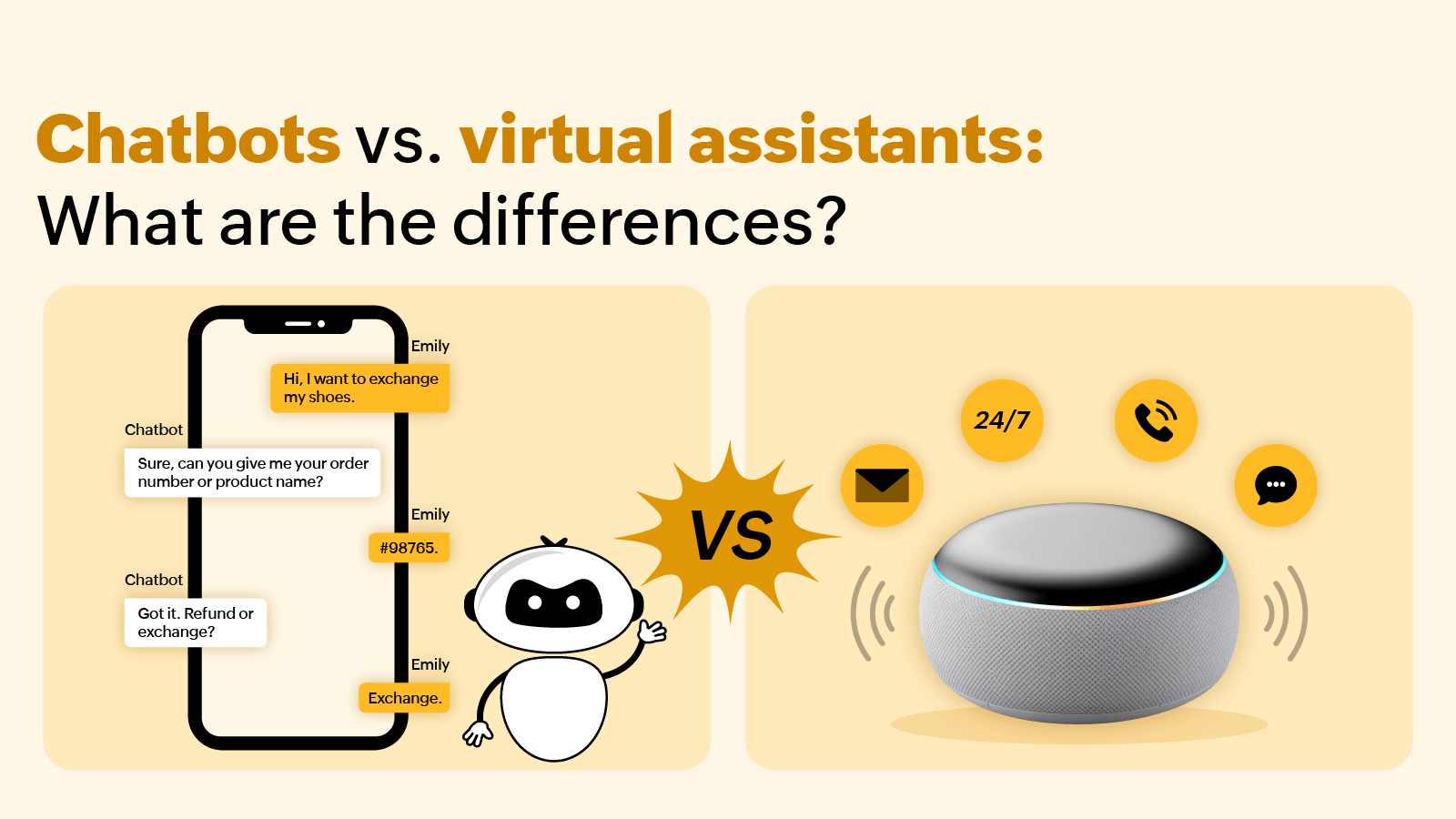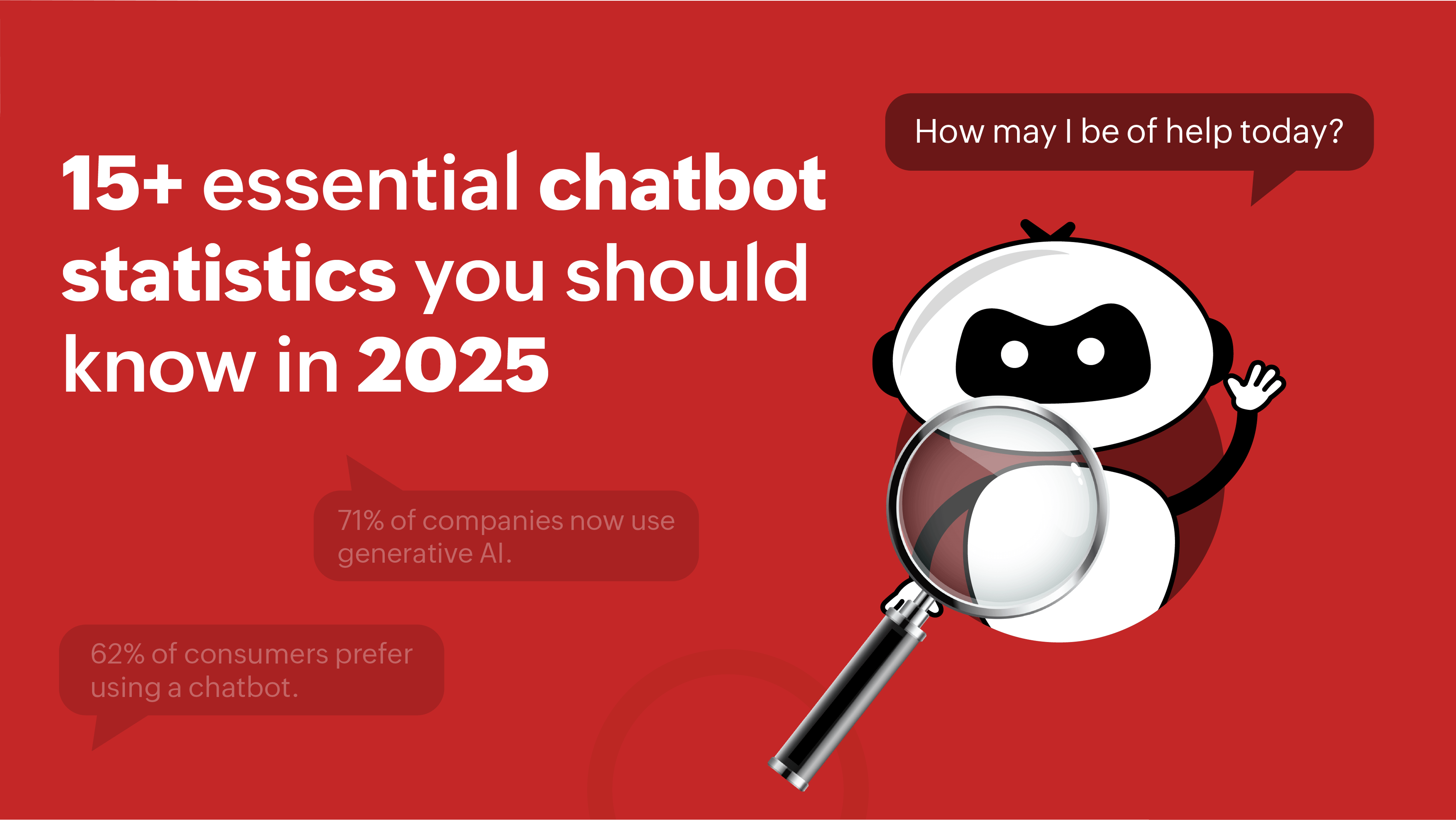What is Conversational AI?
"Conversational AI refers to the ability of computers to understand intent and mimic human emotions to simulate natural conversations in response to text or speech inputs.”
The key here is imitating humans, as the last generation's chatbots could only answer questions based on pre-defined rules without the capabilities to identify intentions or emotions. But conversational AI takes it to a whole new level that allows it to decipher human intentions and emotions, thus making the conversation more authentic and efficient.
Components of conversational AI
To achieve such flawless human imitation, decades of research have gone into this, and the conversational AI we have now is the result of the extensive research that went into NLP(Natural Language Processing), ML(Machine Learning), Neural networks, and the like.
How Conversational AI works
The pre-defined, rule-based models were limited in their application as they were programmed to give specific answers in a certain way. But human queries are never predictable. Their language and dialects vary from one to another. Rule-based models weren't programmed with the ability to understand humans and were dishing out monotonous pre-defined answers.
The scenario changed when NLP (Natural Language Processing) was introduced. NLP comprises two sub-elements: NLU (Natural Language Understanding) and NLG (Natural Language Generation).
So, what happens when a conversational AI comes into the picture?
Receiving input
This will be the same as what we had earlier with the rule-based models. The input system will receive what the user is feeding them in the form of text or speech and pass it to the processing elements.
Natural Language Understanding (NLU)
The role of NLU is to process human inputs in a way that machines can understand. NLU also decrypts the input to understand the intent of the queries and the emotions behind them. NLU has two more components: Intent Detection and Entity Recognition. These help the conversational AI to understand the intent behind the user's query accurately.
Searching the database
Using Retrieval-Augmentation Generation (RAG), the AI will search the database and retrieve the information the user seeks.
Natural Language Generation (NLG)
Using the processed information, NLG (Natural Language Generation) generates suitable human-like responses that provide an answer to the query in text/speech format.
Displaying output
The output unit displays what the system has processed concerning the users' query back to them.
Machine Learning and Deep Learning
But it's not a one-time process, as machines must constantly learn and update themselves to continue imitating human conversations. Machine Learning (ML) and its subset, Deep Learning (DL), were brought in to achieve that. With a constant feedback loop, they'd learn from their previous interactions to understand how closely the AI delivers what's expected and if it can predict the human's way of thinking.
Check out our detailed article on how a chatbot works to get a detailed understanding of this topic.
Difference between chatbots and Conversational AI
- Rule-based chatbotsConversational AI
- Rule-based chatbots are pre-defined and cannot provide personalized communication.Conversational AI is a constantly trained model and can provide a personalized conversation simulating humans.
- Pre-defined rules configure a traditional chatbot, which can't understand the intent or emotion of the queries.Powered by NLP, Conversational AI can understand the intent and human emotions to provide an engaging experience.
- Once set up, traditional chatbots don't need to be monitored constantly.Manual intervention/supervision is required as conversational AI's Machine Learning and Deep Learning constantly learns from past interactions to deliver better experiences.
- Though chatbots can be used as a first line of support for addressing queries, they can't resolve the issues without escalating to humans.Conversational AI can be an alternative to your human support team in most cases, as it can answer even complex queries.
Types of Conversational AI
Though conversational AI is used as a collective term, it comes in various forms:
AI chatbots
FAQ chatbots are text-based user interfaces that let users type their queries and get human-simulated answers.
Virtual assistants
Virtual assistants can be of two types: Text-based and voice-based. The difference between AI chatbots and text-based virtual assistants is their purpose and functionalities. While AI chatbots are primarily programmed to facilitate conversations, their operating range and scope are narrow compared to virtual assistants, as they're designed to perform tasks and can be domain-agnostic.
Voice assistants
Voice assistants use speech technology to understand the language and reply.
Benefits of Conversational AI for businesses
Because of its ability to comprehend human intent and emotions, conversational AI has great importance in assisting and automating mundane tasks, reducing menial grunt work so that humans can focus on high-priority work and perform their tasks better. Overall, from the business point of view, conversational AI offers a plethora of benefits:
Self-service
Though it has applications in other departments, conversational AI is required the most in support departments, within or between organizations and their customers. Because of its ability to understand human intent and emotions and the capability to answer complex questions, conversational AI is best cut out for providing self-service.
Unlike traditional chatbots that provide cookie-cutter answers, conversational AI can go through your knowledge base resources and provide the answers users seek. It reduces the waiting time, improves efficiency, and helps achieve an engaging experience. Furthermore, APIs (Application Programming Interfaces) and database integrations have expanded the capabilities of conversational AI systems to perform various database operations based on user requests.
Lower operating costs
Conversational AI plays a crucial role in being accessible to everyone at all times and, if required, even at the same time. It saves time for those at both ends of the spectrum—customers and businesses—and reduces operating costs as it nullifies the need to have human agents available 24/7. Overall, it helps the teams improve their productivity.
Multilingual
As businesses serve international customers, conversational AI can help them provide the same engagement experience to everyone in their own language, breaking the geographical and language barriers.
Uniform and automated engagement
Conversational AI helps businesses offer a uniform customer experience to all of their customers as it can be incorporated into all the crucial touch points of interaction. It can be automated to reduce manual intervention to zero.
Personalized customer experience
Overall, conversational AI helps businesses provide a uniform, engaged, and personalized experience to their customers, which will help them build trust, stand out amongst their competitors, and make their customers and employees happy.
Conversational AI examples
Theories aside, how businesses can incorporate conversational AI in their daily routine. Here's how some of our customers use SalesIQ's chatbots to provide instant resolution.
Customer support automation
Automation Anywhere, a robotic process automation firm, has automated its customer support operations and uses conversational AI to provide instant and real-time customer engagement.
31% of their monthly incoming chats are resolved without human intervention, which leads to 76% faster resolution provided to their customers. Immediate response and a decreased time taken for resolution via chatbot have encouraged their customers to prefer chat over mail, leading to a 10-fold increase in the incoming chat volume.
Incorporating SalesIQ's bot has reduced their reliance on human agents and saved their time for more critical queries. They're saving 2% of their monthly support operational cost by using SalesIQ.
Hospitality
The hospitality industry has always been at the forefront of creating unique and better experiences for their customers as they cannot afford to have unhappy customers. One of their crucial expectations would be to be available whenever required. Conversational AI fits in here perfectly.
View Retreats, a luxury spa and wellness resort, is using SalesIQ's chatbots so that the visitors can interact with the bot to let them know their needs when no one is available.
Manufacturing
Manufacturing is one of the traditional industries that has been immune to changes happening among the rest. Lately, however, manufacturing has realized the potential of engagement and started investing in it.
BreadPartners, one of our customers, is a family-owned ingredient manufacturer that started using SalesIQ to maximize the utility of its web analytics capabilities and get actionable insights on its marketing and operational strategies. But later, they started using our conversational AI to engage with their visitors proactively, handle employment queries, and even schedule consultations.
With SalesIQ, they can attend to their visitors' queries faster and achieve high CSAT(Customer Satisfaction) scores.
Conversational AI best practices
Have we kindled your desire to create a conversational AI for customer communication via the earlier two sections? Before you proceed, let us also bring to your attention the best practices before and after creating conversational AI, as it'd help you and your customers in the long run.
Are your target prospects and customers interested in conversing with AI?
Conversational AI does wonders for businesses of all sizes, as it can attend to and resolve queries without depending on human agents. However, it shouldn't be considered a blanket use case, as customers' expectations for every business vary.
Before deploying conversational AI, it'd be wise to run a poll with a limited sample of your customers and prospects asking how they would like to chat with an AI before taking them to a human operator. If they're expressing concerns against using, look into them to see the validation behind them.
From what we've learned from our customers, conversational AI can provide a resolution rate of ~95% for L1 queries. Based on your chat history and the volume of L1 and L1 queries you get, you can take a call to deploy conversational AI.
Let the visitors know it's an AI, and the data you collect
It's crucial to let your visitors know before they initiate a conversation that they're talking to an AI. Being upfront about it allows you to give the onus to your visitors If they want to talk to an AI or would like to contact the human agent directly.
Also, let them know what data the bot will collect and how it'll be stored/processed. Visitors might not feel comfortable sharing personal information with the bot, so informing them in advance would increase their trust in your brand.
Be transparent about what visitors can expect and allow easy hand-off
Conversational AI can simulate human conversations and emulate human emotions. But it's not perfect. You cannot expect 100% valuable conversations and resolutions for every kind of query from such AI.
Informing the visitors about what they can expect from the AI and the extent of its capabilities will set the expectations right. Also, when the AI is struggling to provide the answer or if the visitor is irritated about the replies, allowing easy hand-off to operators would help defuse the situation. The best practice is to provide an easy hand-off to operators at any stage, which would help the visitors.
Match your brand's tone
As we discussed above, Conversational AI can provide empathetic responses that simulate human conversations. But it should also match your brand's tone, as every brand has its own unique tone.
Customers who've been with your business for a long time would've been used to your brand's tone. Hence, training conversational AI on your brand's communication tone would help you incorporate it into your existing system with little difficulty.
Monitor the conversations and optimize for better results
Once deployed, that's not the end. Businesses should constantly monitor the conversations and resolutions the AI provides and optimize them for even better results. Also, they should have a feedback loop to know what their visitors feel about the conversation and how they would like it to be improved.
What is Generative AI and how it can compliment Conversational AI
The latest addition to this mix, Generative AI, has been the talk of the industry. How does it differ from conversational AI?
Generative AI can create something new from scratch, be it a text/image/video, and create its own knowledge base library if we feed it the relevant data. Conversational AI cannot create anything on its own but can be trained to converse like a human agent when fed appropriate data.
Because of its limitation to hallucination, Generative AI cannot be used alone in any engagement front. Hence, by combining both, Generative AI will complement the conversations. When the conversation extends beyond the knowledge of conversational AI, GenAI can kick in, find relevant answers from the resources, and answer visitor queries.
This combination can increase the resolution rate while maintaining the quality and accuracy of the conversations.
SalesIQ's Answer Bot-the best Conversational AI for your business
If you're wondering how to get the best conversational AI for your business to reduce operating costs and save operators' time for better purposes, Zoho SalesIQ, the Engagement Intelligence, is your best option.
Zoho SalesIQ's Answer Bot, the NLP-driven conversational AI chatbot powered by our own AI technology, Zia, has been revolutionizing how teams handle their support operations. Its ability to parse through knowledge base resources and provide exact answers to customer queries, a library of small talk responses that makes the conversation personable and unique to various industries, and the recent addition of the option to integrate OpenAI's ChatGPT with Answer Bot make it the best conversational AI for your business.
If you'd like to see how SalesIQ's Answer Bot performs, book a demo, or if you'd like to get a hands-on experience straight away, sign up for a 15-day credit card-free trial.
Related resources
Here are some blogs to help you understand the complete potential of our live chat software.






